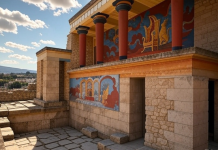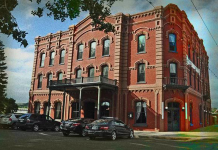What George Washington had to say about political parties: George Washington, the first President of the United States, had significant reservations about the formation of political parties, which he expressed most notably in his Farewell Address, published in 1796.
Here are some key points from his views on political parties:
Warning Against Factionalism:
Washington warned against the dangers of factions and political parties. He believed that they could lead to a divided nation where regional and partisan interests might overshadow the common good. He saw parties as potentially destructive to the unity of the government and the country.
The Spirit of Party:
He spoke of “the spirit of party” as something that “serves always to distract the public councils and enfeeble the public administration.” Washington was concerned that parties would lead to internal strife, encourage foreign influence, and even lead to despotism.
Negative Effects on Liberty:
Washington feared that the competition between parties could eventually threaten liberties by leading to the concentration of power in one faction or another. He believed that this could result in a situation where the government might be manipulated by the prevailing party, thus undermining democratic principles.
The Alternate Domination:
He cautioned against “the alternate domination of one faction over another, sharpened by the spirit of revenge, natural to party dissension,” which he believed could lead to a more formal and permanent despotism.
Encouragement of Sectionalism:
Washington was particularly worried about parties forming along geographical lines, which could exacerbate regional tensions, potentially leading to the dissolution of the Union.
Call for Unity:
Instead of parties, Washington advocated for a unified government where the focus would be on shared national interests rather than partisan goals. He hoped that the love for liberty and the country would be enough to bind the nation together without the need for political parties.
Below is a direct excerpt from George Washington’s Farewell Address that pretty much encapsulates his sentiment.
“Let me now… warn you in the most solemn manner against the baneful effects of the spirit of party generally… It serves always to distract the public councils and enfeeble the public administration. It agitates the community with ill-founded jealousies and false alarms, kindles the animosity of one part against another, foments occasionally riot and insurrection.” — George Washington
Washington’s perspective was shaped by his experience of the early political divisions between the Federalists, led by Alexander Hamilton, and the Democratic-Republicans, led by Thomas Jefferson, during his presidency.
Despite his warnings, political parties became a fundamental aspect of American political life, illustrating the challenges of governing a diverse and growing nation.
George Washington’s concerns about the potential for division and the importance of unity remain relevant in discussions about our often times failing American political culture.








[…] Instead of parties, Washington advocated for a unified government where the focus would be on shared national interests rather than partisan goals. He hoped that the love for liberty and the country would be enough to bind the nation together without the need for political parties. – What George Washington had to say about political parties […]